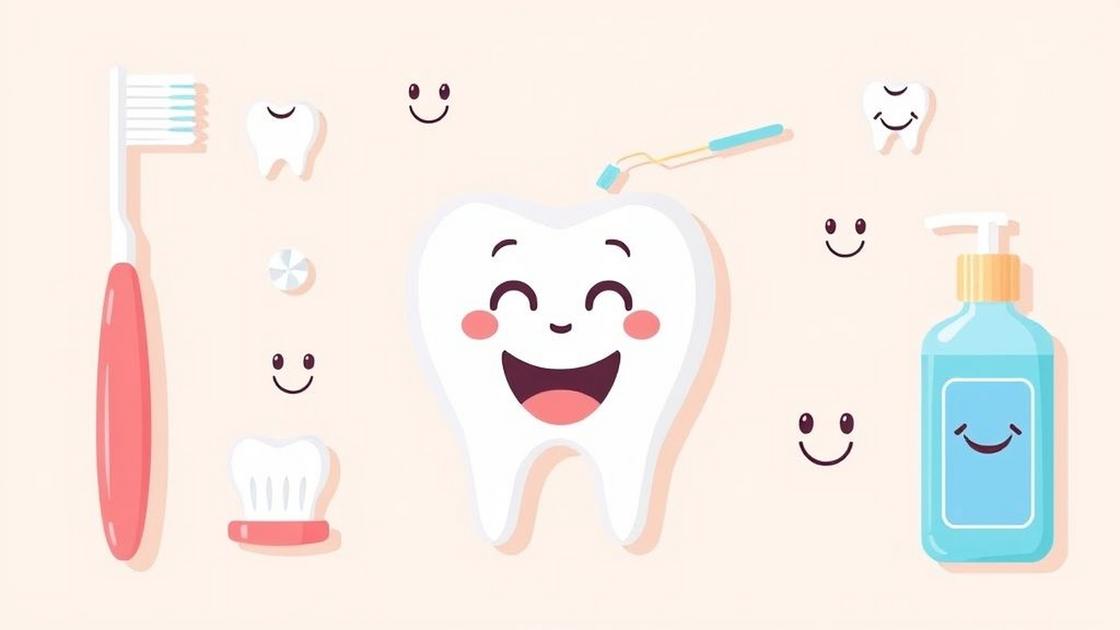Did you know that Vitamin D and Calcium are essential for strong teeth? Many of us overlook how important these nutrients are for our dental health. As women over 30, we often face challenges like fatigue and stress, which can affect our overall well-being, including the health of our teeth. Empowering yourself with knowledge about nutrition can transform how you feel and shine. This article will guide you through the benefits of these nutrients and how they can help you maintain a radiant smile.
Understanding the Role of Vitamin D in Dental Health
Vitamin D is often called the sunshine vitamin because our bodies produce it when we are exposed to sunlight. But did you know it plays a crucial role in maintaining healthy teeth? Vitamin D helps your body absorb calcium, which is vital for strong teeth. Without enough vitamin D, even with adequate calcium intake, your teeth can suffer.
When you have sufficient levels of vitamin D, your body can better support the health of your gums and might prevent conditions like gingivitis and periodontal disease. These conditions can lead to tooth loss, making vitamin D an essential part of your dental health.
Embrace the warmth of the sun. Just a little daily exposure can make a big difference!
The Importance of Calcium for Strong Teeth
Calcium is one of the primary building blocks of your teeth. It helps to form and harden enamel, the outer protective layer of your teeth. Without enough calcium, your teeth may become weak and more prone to cavities and decay. Calcium not only supports bone health, but it’s also essential for teeth to remain strong and healthy.
As you age, your body’s ability to absorb calcium can decrease, making it crucial to consume enough through your diet or supplements. Remember, when you take care of your calcium levels, you’re doing more than just protecting your teeth—you’re also supporting your overall health.
How to Incorporate Vitamin D into Your Diet
Incorporating vitamin D into your diet can be achieved through various food sources and sun exposure. Here are some simple ways to ensure you’re getting enough vitamin D:
- Include fatty fish like salmon, mackerel, and sardines in your meals.
- Consume fortified dairy products, cereals, and orange juice.
- Consider egg yolks and mushrooms as great additions to your diet.
- Don’t forget about direct sunlight! Aim for at least 15 minutes a day, depending on your skin type.
Pairing these foods with sources of calcium can amplify your tooth-strengthening efforts. Enjoying meals rich in both nutrients can become a delightful, nourishing routine.
Top Calcium-Rich Foods for Tooth Strength
When it comes to strengthening your teeth, including calcium-rich foods in your daily meals is essential. Here are some top choices:
- Dairy Products: Milk, cheese, and yogurt are excellent sources of calcium.
- Leafy Greens: Spinach, kale, and collard greens pack a calcium punch.
- Nuts and Seeds: Almonds, chia seeds, and sesame seeds are tasty options.
- Fortified Foods: Look for almond milk or orange juice that has been fortified with calcium.
Cooking these foods in a way that makes them enjoyable can turn them into delightful meals that nurture your body.
The Connection Between Hormonal Changes and Dental Health
Hormonal fluctuations, especially during menopause, can affect your oral health. Changes in estrogen levels can weaken the bones and gums, making them more susceptible to diseases. This is particularly relevant for women over 30, as hormonal imbalances can lead to an increased risk of gum disease, tooth loss, and other oral issues.
Understanding your body’s signals is crucial. Staying aware of hormonal changes and seeking the right nutritional balance, including vitamin D and calcium, can help mitigate these risks.
Daily Habits That Support Healthy Teeth
Developing daily habits can greatly improve your dental health. Here are some simple yet effective practices:
- Brush your teeth twice a day with fluoride toothpaste.
- Floss daily to remove plaque between teeth.
- Stay hydrated and choose water over sugary drinks.
- Use mouthwash that supports gum health.
- Regularly visit your dentist for check-ups and cleanings.
Creating a routine can be empowering. The combination of good oral hygiene and proper nutrition can go a long way in keeping your smile bright.
Supplements: Are They Necessary for Dental Strength?
While getting vitamins and minerals from whole foods is ideal, sometimes supplements can help fill the gaps. If you find it difficult to get enough vitamin D or calcium from your diet, consider talking to your healthcare provider about taking supplements. They can guide you on the right dosages that suit your personal health needs.
Adding supplements to your routine can be a safety net, ensuring you always have access to these essential nutrients.
Signs of Vitamin D Deficiency and Its Impact
Recognizing the signs of vitamin D deficiency is key to maintaining dental health. Some common symptoms include:
- Frequent illness or infection.
- Fatigue or low energy levels.
- Persistent muscle pain or weakness.
- Bone or joint pain.
- Cavities or gum disease.
Being proactive and monitoring for these signs can help you take action before issues arise. If you suspect a deficiency, consult a healthcare professional for testing and tailored advice.
How to Balance Your Nutrients for Optimal Health
It’s important to not just focus on vitamin D and calcium but to maintain a healthy balance of all nutrients. Here are some tips:
- Include a variety of foods in your diet to ensure you’re getting all necessary nutrients.
- Combine foods rich in calcium with vitamin D to enhance absorption.
- Stay informed about how different vitamins interact with one another.
- Hydrate by drinking plenty of water regularly.
By taking small steps towards balanced nutrition, you support not just your teeth, but your overall well-being as well.
Simple Changes for a Healthier Smile Every Day
Making small, incremental changes in your daily routine can greatly improve your dental health:
- Start your day with a breakfast rich in calcium and vitamin D.
- Keep healthy snacks on hand, like cheese and nuts.
- Find enjoyable outdoor activities that allow for sun exposure.
- Incorporate regular dental check-ups into your lifestyle.
These adjustments can create a snowball effect, enhancing not just your dental health, but your overall joy and satisfaction in life. Remember, it’s possible to improve your health and feel vibrant again.
So, dear reader, take a moment to appreciate that every step you take towards better health is a victory. Just like many women like you have transformed their lives by making simple, intentional choices, you too can experience change. We believe in you—embrace this journey and discover the solutions that await you!






